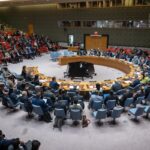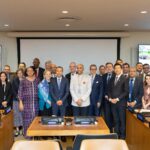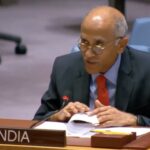At the United Nations Security Council (UNSC) Open Debate on “Women, Peace and Security” held on October 6, 2025, India reaffirmed its longstanding commitment to advancing women’s participation in peacekeeping operations.
Addressing the Council, India’s Permanent Representative to the United Nations, Ambassador Parvathaneni Harish, highlighted India’s pioneering role in integrating women into peacekeeping forces and its broader leadership in promoting gender equality in global security efforts.
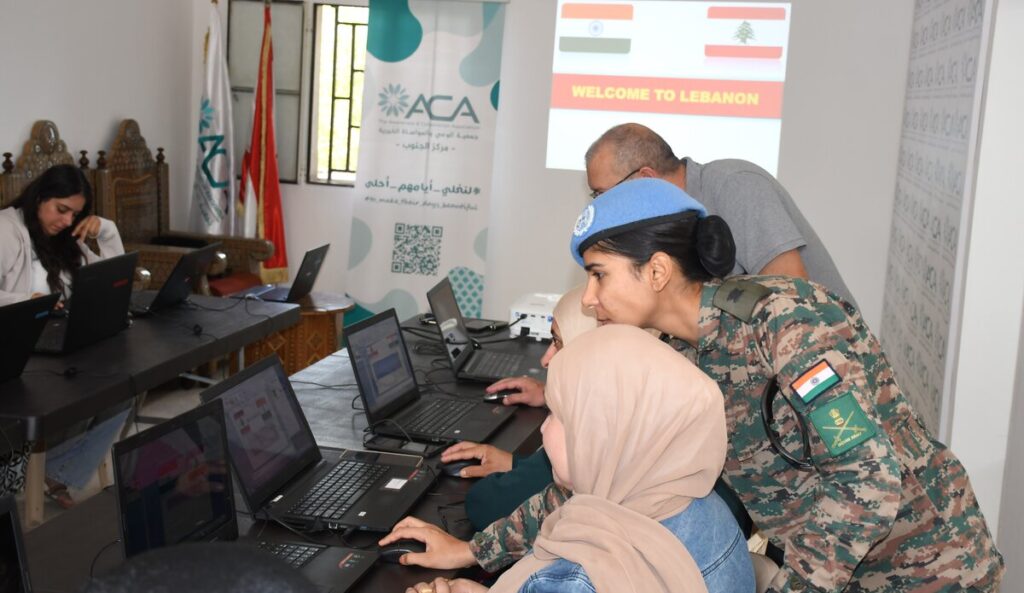
Ambassador Harish noted, “India’s leadership in championing women peacekeepers is exemplified through the appointment of Dr. Kiran Bedi, the first woman officer of the Indian Police Service, as the first ever female Police Advisor and head of the United Nations Police Division in 2003.”
He pointed out that more than 160 Indian women peacekeepers currently serve in UN missions, including all-women Female Engagement Teams deployed in the Democratic Republic of Congo, Abyei in Sudan, and South Sudan. The recognition of Major Suman Gawani (2019) and Major Radhika Sen (2024) with the UN Military Gender Advocate Award, he said, reflects India’s steadfast commitment to the Women, Peace and Security (WPS) agenda.
“We believe that it is no longer a question of whether women can do peacekeeping. Rather, it is whether peacekeeping can do without women,” he added.
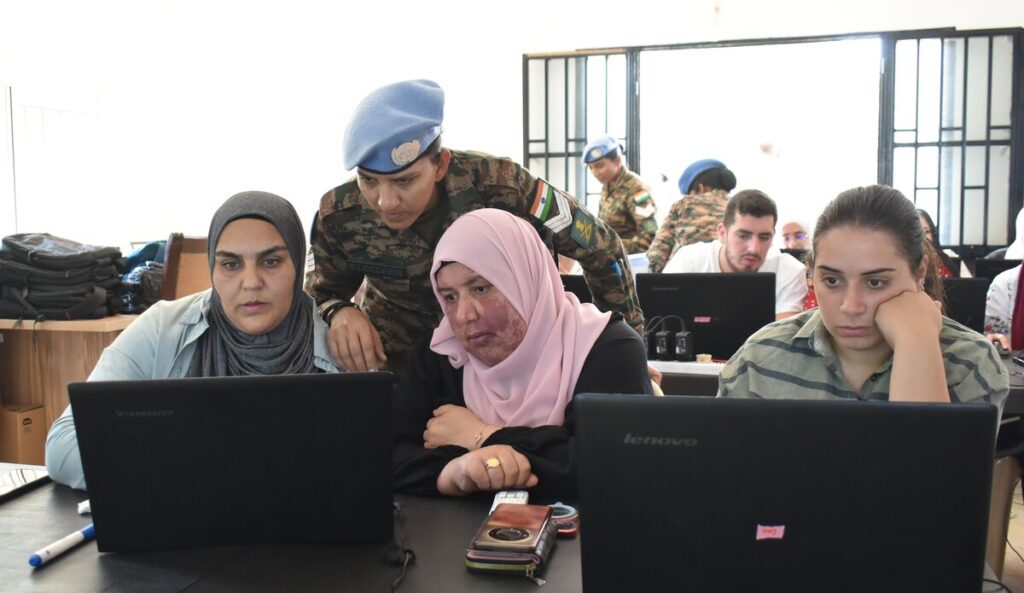
Opening his remarks, Ambassador Harish congratulated Russia on assuming the UNSC Presidency and thanked it for organizing the debate. “As we gather today to mark a quarter century since the adoption of UN Security Council Resolution 1325, we celebrate not merely an anniversary, but a transformative moment that fundamentally reshaped our understanding of peace and security—recognizing that sustainable peace cannot be achieved without the full and equal participation of women,” he said.
The Ambassador underscored that India’s commitment to these principles predates Resolution 1325 by decades. “What distinguishes India’s peacekeeping legacy is not merely the scale of our contribution, but our pioneering recognition of women as indispensable agents of peace,” he said, recalling that India deployed women medical officers to the Congo as early as the 1960s — among the earliest examples of women in UN peacekeeping operations.
Ambassador Harish highlighted India’s groundbreaking move in 2007, when it deployed the first-ever all-female Formed Police Unit to Liberia. The deployment, he said, not only enhanced local security but also inspired Liberian women to join law enforcement and take part in rebuilding their nation. “The unit reduced crime rates while simultaneously demonstrating that women could serve as both protectors and role models,” he noted.
He emphasized that India’s women peacekeepers have helped build trust in communities, provided hope to vulnerable populations, and addressed gender-based violence in conflict zones. Quoting External Affairs Minister S. Jaishankar, he said India views its women peacekeepers as “messengers of peace.”
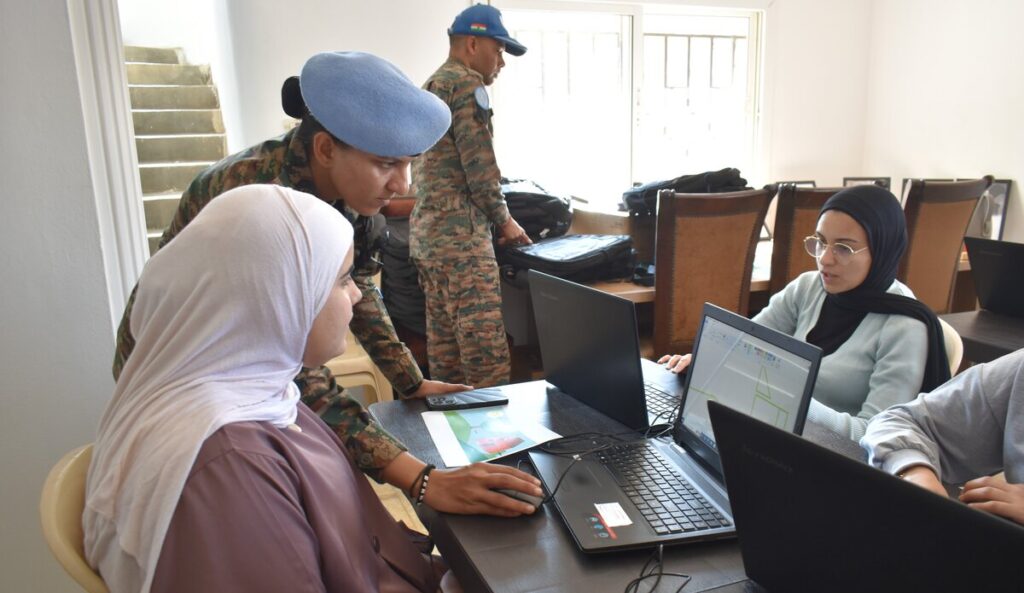
India has also been investing in capacity building for women peacekeepers, particularly from the Global South. The Centre for United Nations Peacekeeping in New Delhi, established by the Indian Army, trains over 12,000 troops annually and in 2016 launched a special course for female military officers from 39 troop-contributing countries.
“This flagship course equips women peacekeepers with essential skills in operational planning, protection of civilians, prevention of sexual exploitation and abuse, and gender-sensitive leadership,” he said.
Ambassador Harish recalled that in February 2025, India hosted the International Conference on Women Peacekeepers from the Global South, bringing together participants from 35 nations to address evolving challenges and develop actionable strategies for greater participation of women in peacekeeping. He also noted that in August 2025, India hosted the UN Women Military Officers Course with participation from 15 countries.
The Ambassador also used his address to denounce Pakistan’s repeated attempts to raise the issue of Jammu and Kashmir at the UN. “Every year, we are unfortunately fated to listen to the delusional tirade of Pakistan against my country, especially on Jammu and Kashmir, the Indian territory they covet. Our pioneering record on the Women, Peace and Security agenda is unblemished and unscathed,” he stated.
He further said, “Pakistan bombs its own people, conducts systematic genocide, and can only attempt to distract the world with misdirection and hyperbole.” Citing Pakistan’s atrocities during the 1971 Operation Searchlight, he said, “The world sees through Pakistan’s propaganda.”
Looking ahead, Ambassador Harish affirmed that India remains deeply committed to the WPS agenda. “We stand ready to share our expertise with partners, particularly those in the Global South, fostering collective solutions to shared challenges,” he said.



